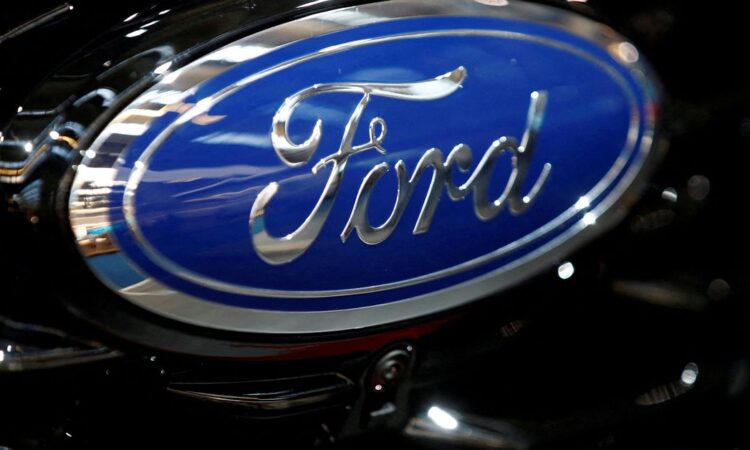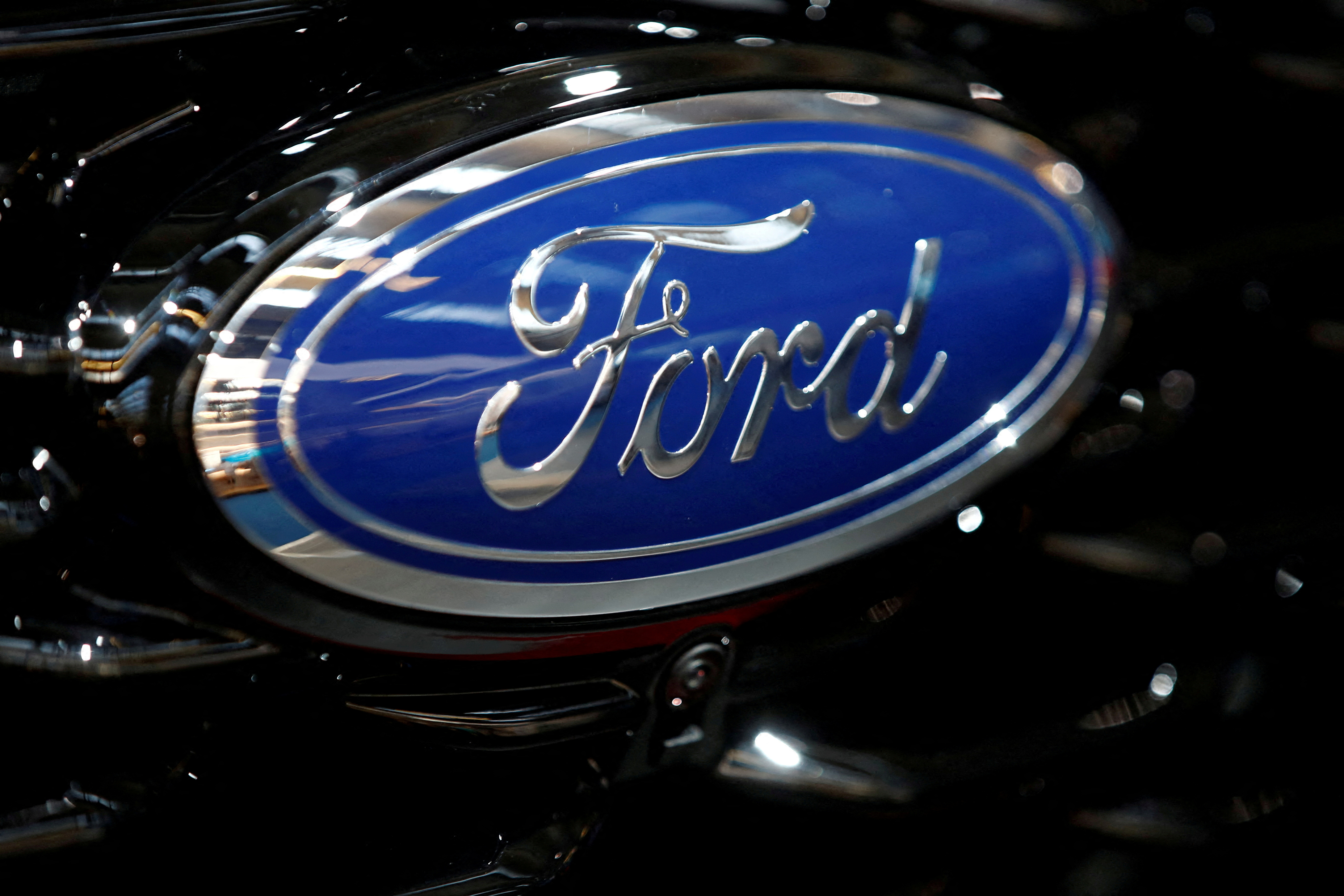

Ford logo is pictured at the 2019 Frankfurt Motor Show (IAA) in Frankfurt, Germany September 10, 2019. REUTERS/Wolfgang Rattay/File Photo Acquire Licensing Rights
WASHINGTON, Oct 18 (Reuters) – Ford Motor Co (F.N) said on Wednesday a proposal by President Joe Biden’s administration to hike vehicle fuel economy standards through 2032 threatens to cause “substantial economic hardship” for the No. 2 U.S. automaker.
Ford’s comments represent the latest attack by the auto industry on the National Highway Traffic Safety Administration’s proposal announced in July to increase vehicle fuel efficiency requirements by 2% per year for passenger cars and 4% per year for pickup trucks and SUVs from 2027 through 2032.
The agency made the proposal as Biden’s administration seeks to cut greenhouse gas emissions to combat climate change and to reduce fuel use. The proposal would result in a fleet-wide average fuel efficiency of 58 miles (93 km) per gallon. NHTSA is due to make a final decision by early next year.
In a filing with NHTSA during the public comment period for the proposed regulation, Ford cited NHTSA estimates that the automaker would face $1 billion in civil penalties through 2032 under these changes in the Corporate Average Fuel Economy (CAFE) program.
“This is alarming in and of itself, and threatens substantial economic hardship for Ford,” the company said of the estimated civil penalties, calling NHTSA’s proposal not feasible and adding that the plan does not provide a level playing field for all automakers.
“We see substantial risk of unprecedented civil penalties in the CAFE program,” Ford said.
The company called for cutting in half NHTSA’s proposed fuel efficiency hikes for SUVs and trucks, echoing the position taken on Monday by the American Automotive Policy Council, a group representing the Detroit Three automakers – Ford, General Motors (GM.N) and Stellantis (STLAM.MI) unit Chrysler.
On Tuesday, electric car maker Tesla (TSLA.O) urged NHTSA to finalize much tougher fuel economy standards calling for increasing stringency for cars by 6% annually and 8% for trucks and SUVs. Tesla sells credits to other automakers to help them meet government vehicle emissions requirements. Higher CAFE credits could force automakers to buy more such credits to meet tougher requirements.
U.S. automakers previously said the fines would cost GM $6.5 billion, Stellantis $3 billion and Ford $1 billion, citing NHTSA’s projections and its $13.7 billion estimate for the industry as a whole.
In June, Reuters first reported that Stellantis and GM paid a total of $363 million in CAFE fines. Ford noted that it has never had to pay CAFE fines.
NHTSA last year reinstated sharp increases in penalties. The agency has said it is prohibited when making penalty projections from considering electric vehicles, and flexibilities like credit trading. It added that its proposal “is focused on saving Americans money at the gas pump and strengthening American energy independence.”
Reporting by David Shepardson; Editing by Will Dunham
Our Standards: The Thomson Reuters Trust Principles.






